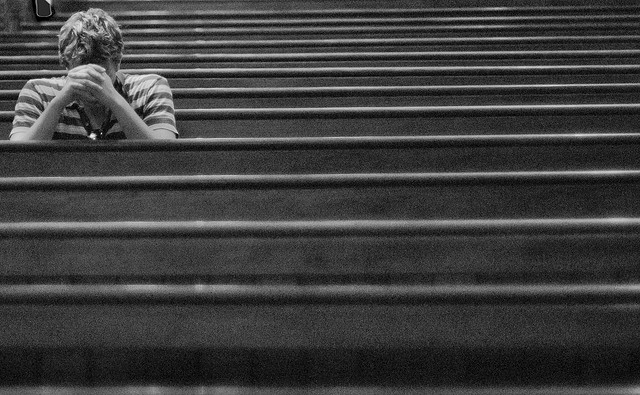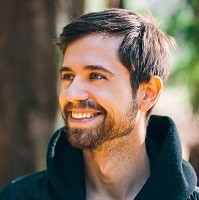I would like to explore the motivational forces behind daily action and address their nature and their outcomes.
To keep a mindful perspective, I will use primary examples of things which people do for health and wellness purposes, including diet, exercise, spiritual practice, religion, and so on.
On one end of the spectrum we have guilt, fear, shame and blame as motivational forces (i.e. beating ourselves up with the spiritual whip).
This raises the questions:
If we believe ourselves to be inherently broken, how can something which is broken fix itself?
How can impurity become pure or purify itself?
This relates to a sense of self-image, self-identity and creating a story. This is a story we carry because we are used to it, and do not know how to break free of it. We have been practicing this story our whole lives, and in order to rewrite our self-image, we need to look within to see when and why we started telling this story.
Part of why this situation takes place is that many of us are raised with religious dogmas of what we should do—what is the “pure” or “holy” thing to do—yet it is always offered as some torturous thing that no one wants to do. For centuries, amid the influence of the Catholic Church there has been extreme hypocrisy, violence, lies and the very opposite behaviors exhibited by those who are upholding this “fear consciousness” paradigm.
This is why priests who say that homophobia is unholy end up molesting little boys. By focusing on what they fear and don’t want, they inevitably give those forces more power and influence in their lives.
Perhaps there would be less turmoil and more congruence with what is holy if we used a motivation that was fun, enjoyable and something which we felt pulled towards—that is: if we operated from a place of love. This makes things sustainable.
Things that involve fear inevitably result in burnout, as it takes a large amount of energy to be fearful. Fear also results in burnt bridges with people because it looks to blame something external for inner conflict. By approaching daily life with a motivating force of love or joy, and doing something because it naturally feels good, we are creating less inner conflict as we are not denying ourselves of our inherit nature.
The nature of focusing on what we don’t want automatically brings that result. Therefore, doing something from a place of fear guarantees that we will eventually fail to uphold that responsibility, in order to live out the fear in which we are continuing to manifest. From an esoteric perspective, this is an example of the law of attraction.
Often times when people are raised with religious dogmas—forced to go to church and to adhere to strict disciplines in which they eventually rebel against—they end up recreating this experience in their adult life.
A good example of this is when you meet people involved with the healing arts (yoga, meditation) who tend to seek out the most tyrannical, difficult or dogmatic practices and teachers to study with. They seek the extremists on each end of the spectrum. This behavioral pattern of seeking evangelical, dogmatic and rigid philosophies also makes people more susceptible to cults and teachers who, through their lens of perception, exhibit strength in conviction. Why? Because cults prey off of fear, and therefore, these people are—once again, through the law of attraction—attracting more of this into their life.
The irony behind all of this is that even though the root practices they are attempting to learn are based in peace, love and spiritual development, they are being distorted and practiced with a dogmatic and evangelical approach that entirely ignores addressing their root spiritual pathology.
Although issues such as war or universal violence can seem complicated, the universal wisdom behind our spiritual journey here is not. Everything can be broken down into yin and yang. The fear, guilt, shame and blame are all one end of the spectrum; you could call this darkness or evil. It is a root cause of war. Perhaps it exists here because we would not truly appreciate its opposite counter-force if we did not know how bad it could get.
The force of love is the opposite side of this spectrum; you could call it the light or good—although in the larger context, there is no good or bad, there are only these forces which exist to fulfill a purpose that is to illustrate to us on our spiritual journeys a contrast of experience so that we may learn and choose accordingly. Therefore, just as night is no better than day, it comes down to preference as to where you want to be on this spectrum—and which force you want to personify more in this lifetime and use as a motivational force for action.
Because these forces have existed for a long time—and may continue to exist unless every single human being suddenly becomes spiritually enlightened—it serves to work within this design, rather than fight it.
How do you want to approach your daily life, and what do you want to be your motivating force? In every decision you make, every choice you have, it is always a decision to choose between the light and the dark—to choose life or death, to choose love or fear.
Our nature is to cling to joy and to avoid pain or sadness. Perhaps the skillful approach is to see these opposing forces as necessary components to our existence and to accept them. We can accept that life is not always perfect or full of light. Therefore, instead of fearing the darkness or creating aversion around it the very behaviors that only fuel this force in the universe and attract more of it, we can practice equanimity.
We can see fear from a place of non-reactivity and acknowledge it rather than suppress it. When things are going well instead of clinging to it, we can be thankful and enjoy its presence, knowing that it will come and go many times.
Hopefully this brings some awareness as to which motivating force is most influential in your life, and whether or not it is bringing you joy—or pain.
~
Author: Brandon Gilbert
Image: Flickr/the prayer continued
Editor: Yoli Ramazzina












Read 0 comments and reply